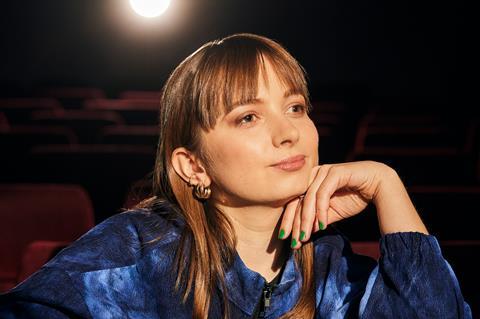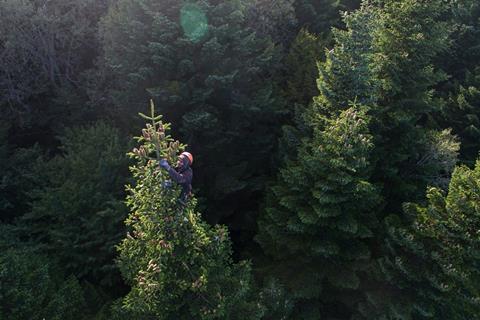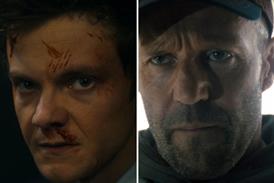
The message of Lithuania’s Vilnius International Film Festival (VIFF), known locally as Kino Pavasaris, according to festival director Algirdas Ramaška, is simple: good cinema does you good. “This year’s programme invites the audience not only to enjoy cinema but also to notice how each film affects us and our inner selves,” he explains.
The 29th edition of VIFF opened with a gala screening for Jonathan Glazer’s Oscar and Bafta-winning Holocaust drama The Zone Of Interest on March 14.
Glazer’s film is a good example of the festival’s carefully curated selection of internationally acclaimed arthouse cinema showing during what is Lithuania’s largest film festival.
Dovilė Grigaliūnaitė, the festival’s head of programme and acquisitions, says the festival’s international line-up is drawn from films that have made a splash at high-profile festivals including Cannes and Berlin and attracted awards buzz.
Selected standouts include Justine Triet’s Anatomy Of A Fall, Molly Manning Walker’s How to Have Sex, Matteo Garrone’s I’m the Captain, Agnieszka Holland’s Green Border, Ryûsuke Hamaguchi’s Evil Does Not Exist and Alexander Payne’s The Holdovers.
This year’s edition has three competition sections: Competition, which consists of first and second feature-length films by European directors, a competition of European short films and Smart 7, the travelling competition across seven European film festivals.
“For the main Competition programme, we are looking for clear authorial voices, bold visions, and experiments in visual language,” explains Grigaliūnaitė.
Grigaliūnaitė and her four-strong selection team’s 10 picks include Catalan filmmaker Elena Martin Gimeno’s Creature; Bosnian director Una Gunjak’s debut Excursion; UK emerging talent Luna Carmoon’s Hoard; Hounds directed by Moroccan Kamal Lazrak; Omen, the directorial debut from Belgium-Congolese rapper; and Polish aid worker-turned-director Maciek Hamela’s In The Rearview.
Rounding out the Competition strand is Portuguese filmmaker Leonor Teles’ Baan; Paradise Is Burning, the debut feature from Swedish documentary maker Mika Gustafson; Forever-Forever from Ukraine’s Anna Buriachkova and East Berlin born filmmaker Eva Trobisch’s Iva
Grigaliūnaitė says the Competition titles “offer audiences a fresh perspective and portend a bright future for Europe’s auteur cinema.”
Local spotlight

VIFF also aims to spotlight Lithuanian cinema and support its creators, with this year edition turning the spotlight not only on Lithuanian directors but also to creators and producers who have presented films co-produced with Lithuania at major world festivals.
The line-up includes five feature-length and seven shorts. Directors DK Welchman and Hugh Welchman’s The Peasants, a Poland-Serbia-Lithuania co-production which melds oil paintings (some 40,000 of them) over live-action footage of actors to create a drama based on a novel dynamic, immersive drama about life in an early 19th century Polish village is among the feature titles.
Lithuania’s Artūras Jevdokimova’s feature-length documentary The Life And Death Of A Christmas Tree, a Lithuania-Georgia-Denmark co-production about how a Christmas tree winds up in his home is also picked.
Splashy premieres at this year’s edition include Where Elephants Go by Gabi Sarga and Catalin Rotaru, and It’s Not My Film by Maria Zbaska, both featured in the Smart 7 programme.
And there is also a return of two special programmes – Midnight Screams and Dress Code to attract audience eyeballs. Dress Code invites audiences not only to follow the hidden messages of costume designers in cinema but also to discover the work of prominent figures: films featuring the work of Edith Head, Jacques Fonteray, Sandy Powell and Milena Canonero are unspooling.
In the Midnight Screams section, “chilling horror and erotica intertwine, along with the taste of wine and blood,” according to Grigaliūnaitė.
The programme includes screenings of cult classics from David Cronenberg (Crash) and Nagisa Ōshima (In The Realm Of The Senses), Anna Biller’s The Love Witch, Paul Morrissey’s Flesh For Frankenstein in 3D format, and Harry Kümel’s film Daughters of Darkness.
“Festival audiences are always looking forward to new things,” says Grigaliūnaitė. “This year for the third year we invited the audience to screenings at the Lithuanian National Opera and Ballet Theatre just before the festival, where they watched, amongst others, Charlie Chaplin’s The Gold Rush with was conducted by the orchestra, and one of the very first horror films, Häxan, which was soundtracked by one of the most famous DJs in Lithuania, Manfredas.”
For Grigaliūnaitė the success of the festival is personal. “Next year, Vilnius Film Festival will celebrate its 30th birthday, and throughout its time it has been one of the main places to see major works of arthouse cinema,” she says.
“Many generations have grown up discovering cinema at this festival, including myself. Our audiences already know what to expect from the festival programming wise, but at the same time they have very clear needs - they are looking forward to the year’s best international arthouse cinema, to the work of the masters of cinema, and they also want to be surprised.”
VIFF is taking place in the Lithuanian captial until March 24.

























No comments yet